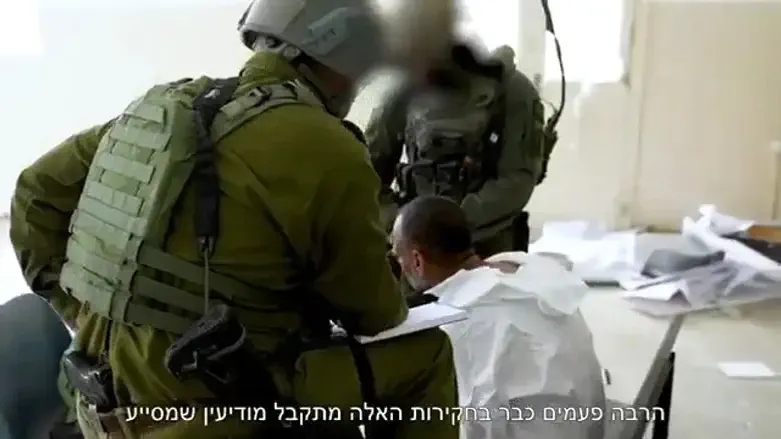
Amit Assa, a former Shin Bet senior, tells Arutz Sheva – Israel National News about the methods used by the Intelligence Unit’s Nili Team to reach their goal of catching every single Nukhba terrorist who participated in the October 7th massacre in the Gaza Envelope.
Assa explains that the Nili Team collects intelligence from all possible sources that are available to the security forces, which is not only general information about the person, but also involves following him over time, knowing where he is at any given moment, and connecting that to the IDF’s operative abilities to ‘put their hands on him’.”
Assa compares the current chase after terrorists to the chase Israel conducted after the murder of eleven Israeli sportsmen at the Munich Olympic Games in 1972, “a chase that ended only twenty years later, when the last terrorist was caught,” but in the end, “we got them all, wherever they were in the world.”
“Things are currently different,” says Assa, “in terms of scope. The Nukhbas are a very big group, and you first need to identify them by name and tailor a personal intelligence file for each one. This is a very meticulous process, and you receive information from many sources. It is not simple. You have to try and find their address, see who is related to them, who is a partner in the organization and collect data through listening to telephone calls, social networks, etc. All the information goes into the intelligence collection funnel. The process for each one is the same, but times many more.”
Assa adds that most Nukhba terrorists have already been killed in the fighting until now. "In the first days of the fighting, on October 7th and 8th, the IDF managed to locate them in Israel and arrest them. We will carry on pursuing those who returned to Gaza and continued in the ranks of Hamas, or as civilians who are apparently defined as uninvolved, but went undercover and committed brutal murders and other heinous acts, until we lay hands on them, which means arresting or eliminating them."
Assa continues to explain that it seems that when following up on a large number of targets simultaneously the challenge is perhaps easier, because they are able to obtain information on several people at the same time, but “There is a lot of information, but we don’t listen to all of the people in Gaza at the same time. We must be focused and decide who to listen to. The Shin Bet's intelligence resources are limited. We put on headphones and need to listen and derive intelligence information from the calls, like who is talking, the topic, location, etc., and so I can move forward with an operational plan to catch this person."
“As the security forces arrest more terrorists, they interrogate them and collect more data, such as other members of the squad, the commanders, his responsibilities, where they train, where the tunnels and infrastructure are. We also recruit some of these terrorists for our own needs and use them as agents."
Assa says that they “recruit agents even during a war, as long as we have access to the area. Sometimes we secretly interrogate people in a mosque and some join us as agents, knowing that they are starting to work for the enemy. We have to convince them that doing this will help both us and them.”
So, we get to the most difficult question of the interview – if Israel’s intelligence is so capable and skilled, how come it suffered such an immense intelligence failure prior to October 7th? How did the security forces not identify the thousands who launched the worst attack on Israel in all its years?
Assa concludes, that "As we receive more information, through intelligence and media, we understand that we had information about their plans and ability, but we did not believe that this was going to happen, because we thought that Hamas had reasons not to do it. Our failure is in the analysis. That is, we had the information on a tactical level. While there were information systems that fell on the night of October 6th, by the time they were lifted, in terms of intelligence it was already too late. But that is not the problem. The problem is that we were all prisoners of the concept that Hamas can and wants to, but will not do it, because they were deterred in some way or another. I see this as a strategic, and not a tactical, failure. The Shin Bet has excellent intelligence, and so does the IDF. These are people who enable very clever security operations. They bring accurate information to chase down a terrorist, which is not easy. Our tactical intelligence is excellent, but this was a strategic failure made by the decision makers, leaders and intelligence planners. We do not put enough focus on strategic intelligence, on our enemy’s desire to act at the strategic level and I believe that this is what led us to the failure of October 7th."
